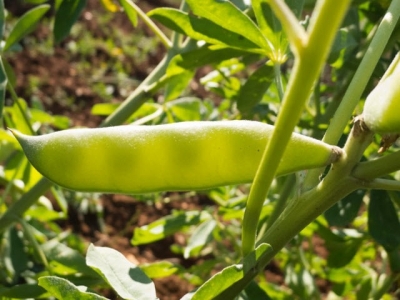UK arable farmers urged to help reduce organic feed deficit

The UK is facing an increasing deficit of crops for organic animal feeds, finds a new report.
The UK Soil Association, which promotes organic farming, has released a new publication outlining the rising demand for organic cereals in that market, and it makes the financial case for farm conversion.
It said, in 2015, the UK imported close to 80% of its organic animal feedstuffs, and this reliance is increasing year on year. AIC data shows at least 160,000 tons of organic animal feedstuffs are now being imported annually into the UK.
Liz Bowles, head of farming at the UK Soil Association, noted some UK organic livestock farmers are now routinely wholly reliant on imported feed for their animals: “We need more organic arable farmers in this country, to build our resilience and to satisfy the growing demand for home-grown UK feed crops that represent the high standards and provenance of UK organic farming."
The Soil Association believes the UK could grow more organic arable crops, that it could, indeed, double such cereal production to 80,000 ha.
In England, the Government has confirmed it will guarantee support for converting and organic farms entering the Countryside Stewardship Scheme, though only if agreed and signed before the UK leaves the EU.
The new Soil Association report cited data showing poultry and dairy are among the fastest growing categories for organic food sales in the UK - organic egg sales, for example, grew by 7.6% in that market in 2017.
Land dedicated to organic farming globally
Globally, organic land represents just 1.1% of all agricultural land (5m ha). In the EU, organic farming accounts for 6.2% (12.72m ha), the highest of any region in the world [FiBL – AMI survey 2017].
In the UK, around 3% of agricultural land is organic. The area of organic land in that market has been in decline since 2008, according to the UK’s Department of Environment, Food and Rural Affairs (DEFRA) statistics. By 2016, the total area under organic management in the UK was 508,000 ha (down nearly 32% from the peak) with only 37,000 ha in arable crops.
EU wide organic feed initiative
A new EU project aimed at helping organic pig and poultry farmers achieve the goal of 100% use of organic and regional feed got underway in January this year.
The Horizon 2020 backed OK-Net EcoFeed will run until December 2020.
In EU organic regulation, there is a requirement that a certain percentage of the animal feed has to be sourced regionally. “We want to help organic producers to be able to implement that,” said Dr Bram Moeskops, OK-Net EcoFeed project coordinator.
We have previously reported on how UK organic feed operators have decried protein raw material supply constraints including specialty poultry compounder, Humphrey Feeds, and organic dairy feed supplier, Mole Valley Farmers. Moreover, Belfast-based, Devenish Nutrition, told us last year it was evaluating whether to get certified organic growers in the UK and Ireland to supply cereals under contract to ensure volumes match its business needs, as the demand for organic feed was outstripping supply in those markets.
Importing organic feed protein such as organic soy from China a huge distance from where the animals are raised is not sustainable, said Moeskops.
“It results in additional CO2 emissions from the transport involved and it disturbs nutrient cycles, preventing us from closing such cycles at a more regional level.”
OK-Net EcoFeed is setting up 11 innovation groups comprising pioneering organic pig and poultry producers, feed companies, researchers and advisors in various EU countries. Those units will function as an information exchange hubs. The groups will determine how organic producers either get the tools they need to grow more organic feed themselves or source it more readily from arable farmers in their neighborhood.
“This is not a research project with scientists only. Instead, we will ask organic farmers directly about their challenges in relation to growing or sourcing organic feed crops and then we will explore what knowledge already exists in literature and in daily practice in relation to those issues."
It is not just about growing organic soybeans locally. “We are evaluating the benefits of growing alternatives such as faba beans and the challenges around certain aspects of using them such as potential anti-nutritional factors.”
He said while there has been a lot of research into such crops, organic farmers may often not be aware of the findings of such work. The innovation groups will facilitate face-to-face exchange between farmers, at both the national and international level.
Related news
 Vietnam makes initial results in organic agricultural development
Vietnam makes initial results in organic agricultural development Organic agriculture, however, is not easy as agricultural enterprises are facing a range of challenges related to land, credit, support policies, and inputs.
 Festival promotes litchi from Thanh Hà
Festival promotes litchi from Thanh Hà The first Thanh Hà litchi festival will be organised in the northern province of Hải Dương on June 10 to promote the local specialty fruit.
 Vietnamese group wins Japonica rice export contracts to RoK
Vietnamese group wins Japonica rice export contracts to RoK Its rice processing plant is located in Lap Vo district in the Mekong Delta province of Dong Thap with capacity of 180,000 – 200,000 tonnes of rice per year.